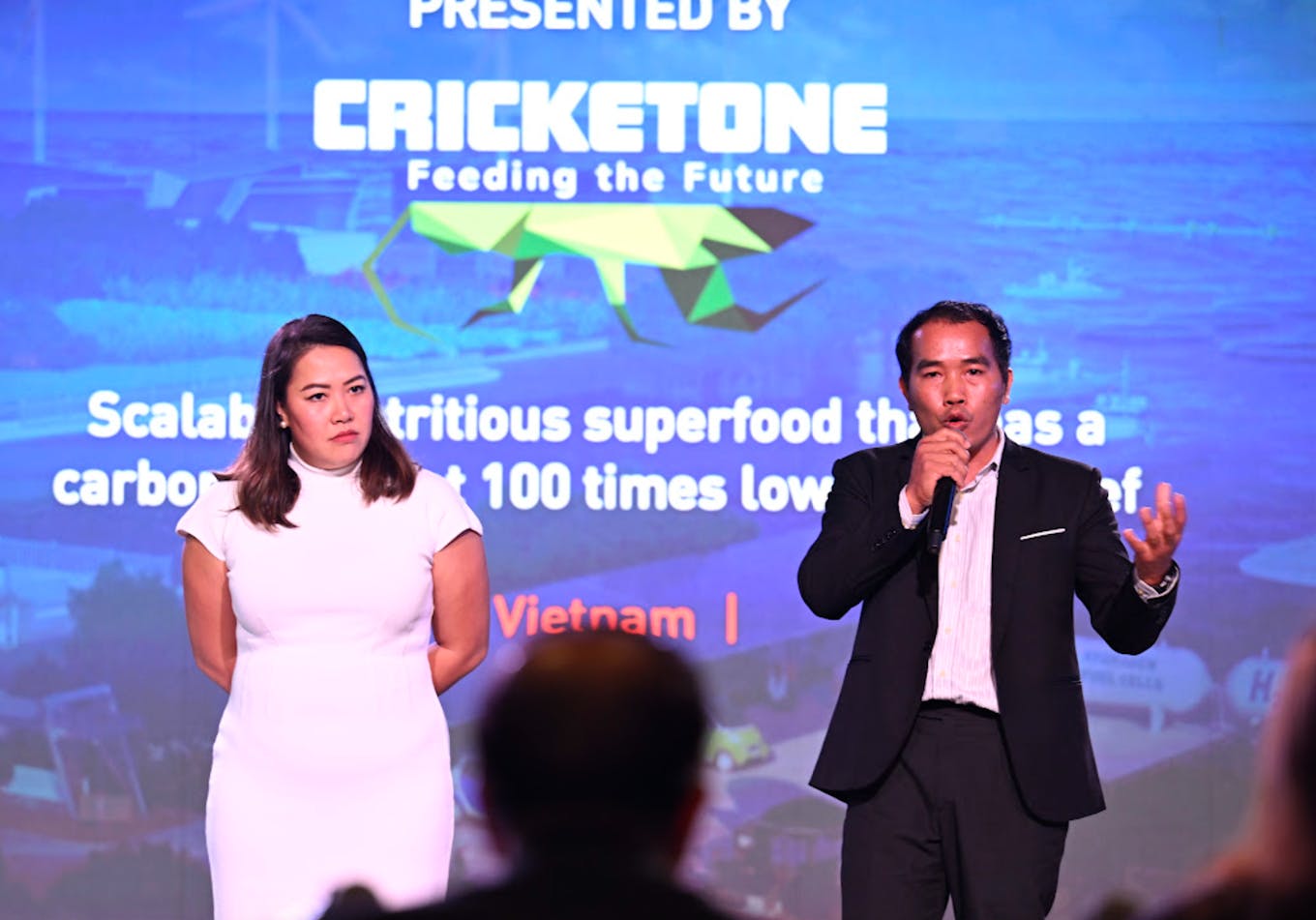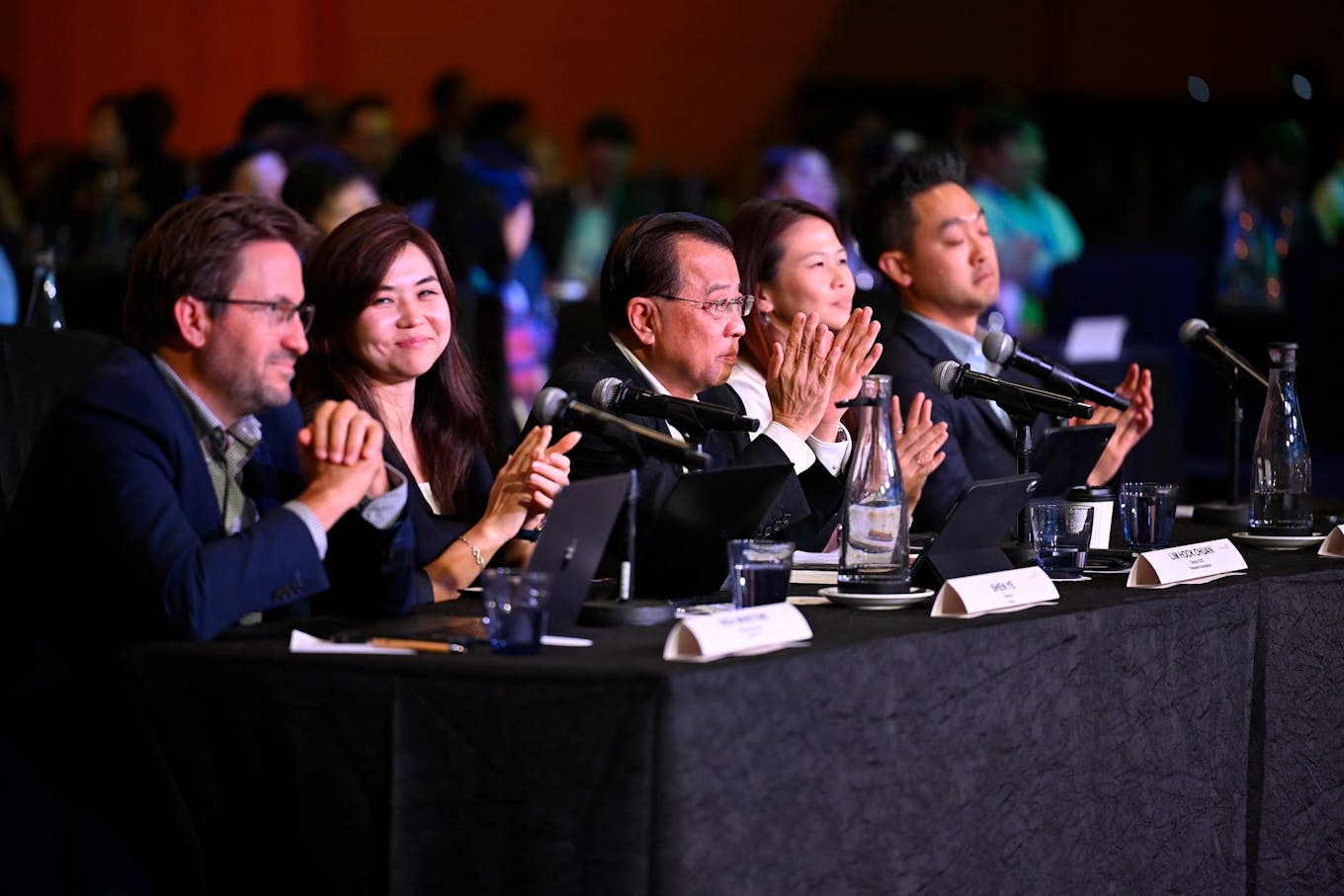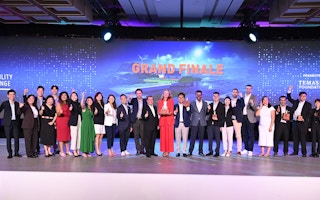Ideas to replace meat with insects to reduce the climate footprint of food and to power aircraft with greener fuels won the top prizes at the 2024 edition of sustainability innovation competition The Liveability Challenge (TLC).
To continue reading, subscribe to Eco‑Business.
There's something for everyone. We offer a range of subscription plans.
- Access our stories and receive our Insights Weekly newsletter with the free EB Member plan.
- Unlock unlimited access to our content and archive with EB Circle.
- Publish your content with EB Premium.
The winners were chosen ahead of five other finalists to clinch S$1 million (US$0.73 million) each in funding at the event in Singapore, which was presented by Temasek Foundation and organised by Eco-Business.
The big winners were Cricket One, a Vietnamese team that makes protein from crickets, that won grand prize in the food and nutrition category, and GAFT, a Dutch team that produces sustainable aviation fuel (SAF) from fat and sugar that won the climate grand prize.
Cricket One’s products have an environmental impact 70 per cent lower than whey protein, and are already sold in 27 countries across four continents.
GAFT’s aviation fuel, which is produced using renewable electricity, is made at a lower cost than other SAF types and burns with 30 to 50 per cent less greenhouse gas emissions.
Commenting on Cricket One’s win, Lim Hock Chuan, head of programmes at Temasek Foundation, said that projected population growth in the next decade will put pressure on food supplies and traditional farming, and alternatives need to be sourced. “Cricket One’s solution provides a protein choice at a lower cost, and will especially benefit lower income groups.”
Bicky Nguyen, co-founder and business development director of Cricket One, said the edible insect start-up aspires to fulfill its mission to build a net-zero food chain. “I hope we can explore and unlock more of the functionality and charecteristics of cricket protein and we see it being transformed from a product with a niche market to one that reaches the mainstream.”

Bicky Nguyen (left) and Nam Dang from the Cricket One team argue the case for their meat alternative solution to the judges at The Liveability Challenge 2024. Image: Eco-Business
On GAFT, Lim said that the use of SAF is anticipated to contribute nearly two thirds of the emissions reductions required for the aviation sector and the start-up’s technology could potentially solve the bottleneck problem for SAF feedstock.
Three other funding prizes were awarded to Bound4blue from Spain, which produces wind-assisted propulsion suction sails to reduce fuel consumption in shipping.
Nandina REM, a maker of circular carbon fibre materials recovered from aircraft, was also awarded a S$100,000 (US$73,000) prize. It also won the audience prize, with a majority vote of nearly 40 per cent. A total of US$2.5 million (US$1.86 million) in funding and grants was awarded.
Other shortlisted entries included Canadian team Terra Bioindustries Inc, which produces low-carbon proteins and sugars, tHEMEatCompany, a maker of alternative protein products that look, cook, smell and taste like real meats, and Green COP, which produces shipping biofuel from agricultural waste.
This year’s edition of TLC drew more than 1,000 submissions from 100 countries.
Last year’s The Liveability Challenge was won by a fish disease prevention startup and an emissions reduction firm. Past winners have included a social forestry project in Indonesia, biodegradable bioplastic and lab-grown milk.
TLC made headlines in February when 2021 winner SeaChange, which absorbs carbon from the ocean, was greenlit to build the world’s largest ocean-based carbon removal plant in Singapore.

The judging panel for The Liveability Challenge 2024 included (from left to right) Nick Winstone founder and managing partner for Aera VC, Shen Ye, director of TRIREC, Lim Hock Chuan head of programmes at Temasek Foundation, Emily Liew, assistant managing director, innovation, Enterprise Singapore and James Ong, chief strategy officer, IMC Pan Asia Alliance Group. Image: Eco-Business












